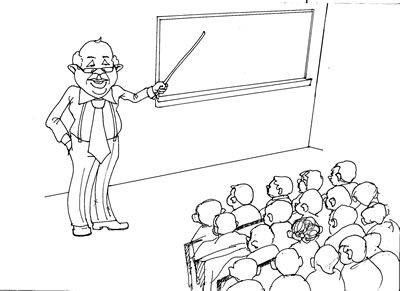The decline in government funding of higher education, the economic downturn, the long decades of unforgivable neglect, along with rapidly rising costs of the different services and products that universities have to provide, have led to steady increases in students and parents outlays over the last two or three decades. There are no indications that costs will go down, neither are there signals that one day, university education will be free – as called for by many segments of the society.
According to some studies, the major cost drivers are academic and administrative salaries, the rise in the costs of municipal services, including electricity, water, the cost of powering laboratories, libraries and other teaching and learning amenities, and maintenance of infrastructure. The impact of rising costs has also been felt from the naira-dollar exchange rates on the cost of library holdings, as a result of most books and materials for libraries being bought from dollar-denominated countries.
In Nigeria and many other African countries, higher education is recognised as a public good and is, therefore, expectedly and understandably highly subsidised by the state. However, increases in student fees have had adverse consequences on students’ ability to access higher education.
While Nigerians find higher education in the country expensive, the cost of university education is comparatively low compared with international institutions. Viewed in dollar terms and the falling naira value, Nigeria’s degrees will be perceived as much cheaper in comparison.
There is no doubt that universities are very expensive to run, especially in developing countries such as Nigeria. In most cases, close to 65 per cent of costs are associated with highly qualified and experienced staff, while a further major cost is the provision and maintenance of the university’s domain.
I grew up in the 60s and 70s. I went to four secondary schools in the old Western Nigeria, where the standard of education was so high, no matter where the location of the school, urban or rural. I ended up with a good School leaving certificate result that enabled me to, and got an opportunity to go to the University of Ibadan, through passing the entrance “Preliminary” examination, thereby, bypassing the old Advanced Level certificate, where I got both an undergraduate degree, and many other unquantifiable skills, experience, abilities and most importantly, a very sophisticated outlook in life, dignity in labour and an expansive view of the world. On the way, I received students’ loans, grants and state bursaries, and now, I can hardly say I was disenfranchised, but I used that freedom this great country gave me.
This now brings me to my initial lines of thought. I have always been one of those who criticise the high fees charged by private universities in Nigeria, especially the ones owned by the Pentecostal and other religious organisations. But another look at this convinced me they are not entirely wrong.
Most of the criticism directed at them had been that the members of the congregation, who actually funded the universities through tithes, contributions, Sunday collections, among others, are usually the ones who cannot afford to send their own children to these schools, supposedly owned by them. Another is that the heads of those churches are exploiting the congregation in the process, diverting funds to themselves.
While I agree with the evidences above, the fact remains that establishing and maintaining those universities were always not going to be cheap. When I attended university in Nigeria, there were only about six universities, all owned and 100 per cent funded by the Federal Government. These universities were established and built when Nigeria was still “good,” most of them immediately after independence and during the oil boom era; the people who established them were committed and sincere Nigerians; money was available and international cooperation and collaboration was easily sought and available, and Nigeria was not as corrupt and degenerate as we have now.
Then with the creation of more states in Nigeria, come the proliferation of state-owned universities, which, because of our innate political immaturity, often fall victim of discontinuity of government, even during the military tenures. A new governor comes in, jealous of his predecessor, and refuses to continue funding of the state-owned universities and other institutions.
So, when the Federal Government decided to liberalise the education sector, the churches and other religious organisations started their own venture into the education, or rather, tertiary education sector.
Ordinarily, this would have been greatly commendable. In fact, it is still commendable, as they are complementing the efforts of the Federal and state governments in the education sector; but, being Nigerians, their motives have not been entirely holistic or altruistic. It has been full of hypocrisy and self-promotion. However, as I mentioned above, I have now tended to be a bit sympathetic to their situation.
Establishing and maintaining an institution of higher learning (and in fact even primary and secondary schools) in Nigeria is not cheap, and is no mean task. Even the conditions they have to meet before they are granted the licence to establish are usually very daunting.
University education is not cheap, and these Pentecostal and other religious operators must be spared some criticism and flagellation. However, one would have suggested that the way out for them to avoid the scathing criticism that their own congregation are not able to afford sending their children to schools that were built with their money, is to give financial concessions to them in terms of reducing fees for members.
- Adejumo lives in the United Kingdom.
WATCH TOP VIDEOS FROM NIGERIAN TRIBUNE TV
- Relationship Hangout: Public vs Private Proposals – Which Truly Wins in Love?
- “No” Is a Complete Sentence: Why You Should Stop Feeling Guilty
- Relationship Hangout: Friendship Talk 2025 – How to Be a Good Friend & Big Questions on Friendship
- Police Overpower Armed Robbers in Ibadan After Fierce Struggle






